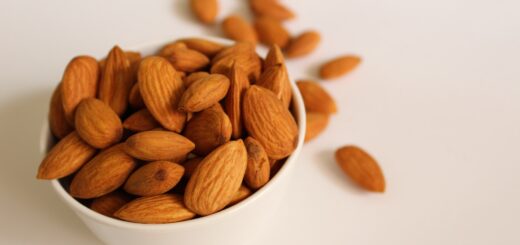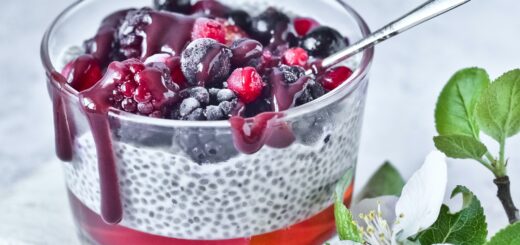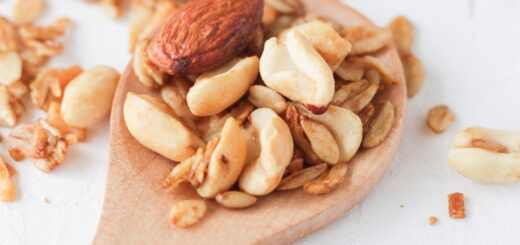4 Nutritional Benefits for Pumpkin Seeds
Did You Know?
Pumpkins are a vegetable that is grown in tropical and sub-tropic regions in the world. In countries like China, India, and Pakistan, pumpkin seeds are used for medicinal properties because they are packed with protein, zinc, magnesium, antioxidants, and healthy fats. You can eat them shelled or unshelled, raw, or roasted and a small amount is enough to add nutritional benefits to your eating habits. Let’s discuss these 4 nutritional benefits below
Benefits of Pumpkin Seeds
1. Fiber
Fiber is an important part of any healthy diet. According to The Institute of Medicine, the daily recommendation of fiber for adults 50 or younger is 38grams for men and 25grams for women. The recommendation for adults 51 or older is 30grams for men and 21grams for women. Fiber can be found in multiple food choices and pumpkin seeds are a great option. The average amount of fiber in pumpkin seeds is 5g in one serving (1oz), however, the fiber intake is increased when eating pumpkin seeds with the shell. The Cleveland Clinic recommends being cautious with high fiber foods because your stomach may experience some issues so start with a few seeds. If you don’t like the texture or taste, unshelled pumpkin seeds are still healthy and contain nutritional benefits
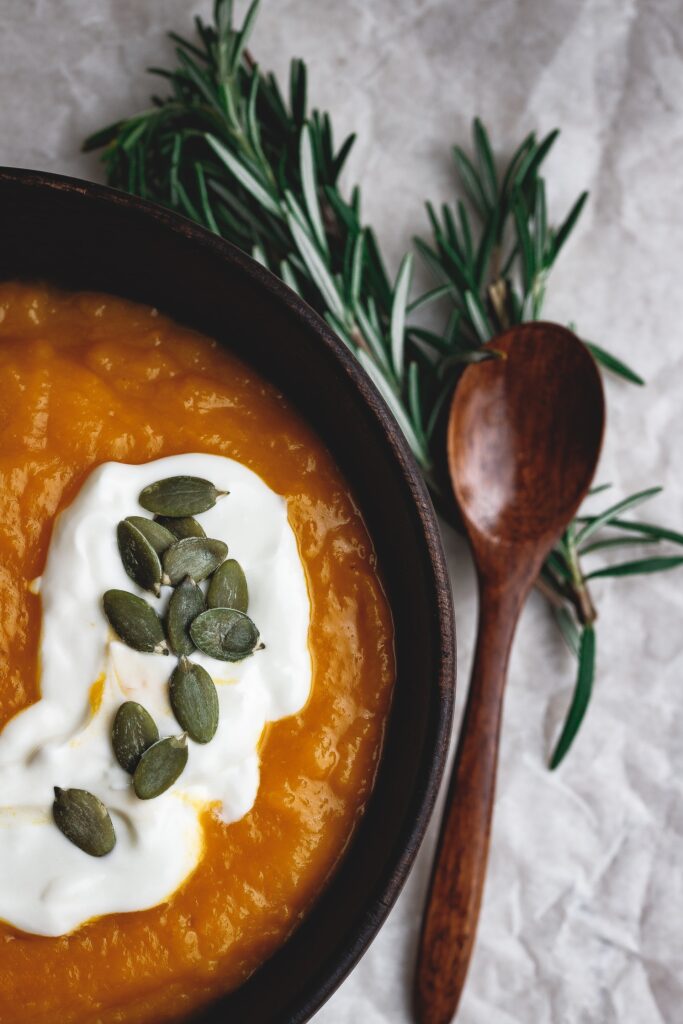
2. Zinc
Zinc is a mineral found in the body that supports healing, the immune system, and enzyme reactions. It is a mineral that shouldn’t need extra supplementation outside of everyday foods like fortified cereals, seafood, nuts, beans, and dairy products. According to Mayo Clinic, the recommended daily intake of zinc is 8mg for women, and 11mg for men. The only popular context of supplementation is usually during sickness and zinc has been proved to relieve the symptoms of a cold. However, as a snack, pumpkin seeds contain an estimated 14% of the daily recommended intake and should be considered as an option to include.
3. Healthy Fats
Pumpkin seeds are a great source of healthy fats, especially omega-3s, which have been known to help reduce blood pressure and your risk for health attack and stroke. The American Heart Association (AHA) recommends that everyone should eat 2 servings of fish per week to get an adequate amount of omega 3’s. However, omega-3s can come from both plants and animal sources. You can alternate between animal-based and plant-based omega 3s and so pumpkin seeds, flax seeds, chia seeds, and hemp seeds are worth trying.
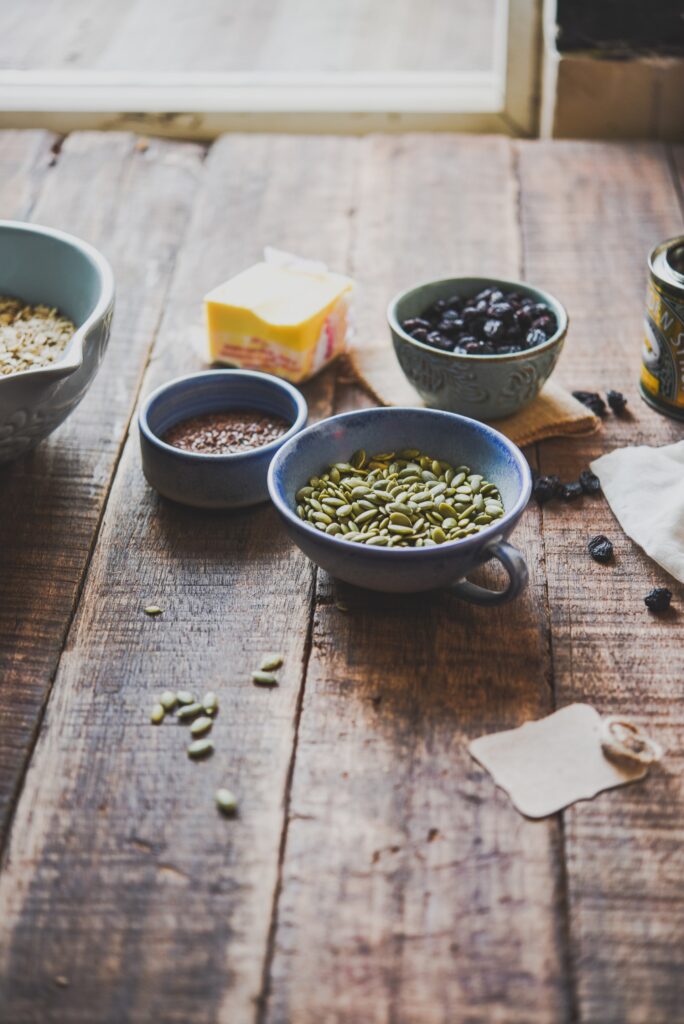
4. Magnesium
Magnesium is a supplement that plays a crucial part in the body in supporting muscle and nerve function. It is the fourth most abundant mineral in the body, and it is involved in more than 300 different enzyme reactions. It is essential for muscular contraction, nerve transmission, and neuromuscular function. It can be found in beans, vegetables, nuts, seeds, and more specifically pumpkin seeds. The daily recommendation of magnesium for men is 400-420mg and for women is 310-320mg. One serving (1oz) of pumpkin seeds has 150mg and should be included as an option for magnesium-rich foods.

What Should You Do About It?
First, talk to your doctor. Especially if you take certain medications or have a medical history. It is recommended that those with GI issues like Crohn’s and colitis be cautious with eating pumpkin seeds because the fiber could exacerbate their symptoms and inflammation during a flare-up.
How To Make It SMART
SHORT- Consider including pumpkin seeds in your diet. You can choose to eat them raw or roasted/flavored. You can consume them alone, sprinkled in a salad, as part of a trail mix, or in yogurt and smoothies
MEASURABLE- This depends on what you are eating them for. Since they are not responsible for one ailment, you should consider consuming them as a good source of nutrients for overall health
ATTAINABLE- Is this something you want to implement consistently? This can be another nut option to put in rotation with what you eat
REASONABLE- Is it possible to implement? Can you start to include pumpkin seeds into your diet? You can use pumpkin seeds in replacement of another nut. You don’t have to eat them daily, but occasionally
TIMELY- Commit to including pumpkin seeds into your diet to support your overall health
As always,
Love yourself in health, one day at a time

